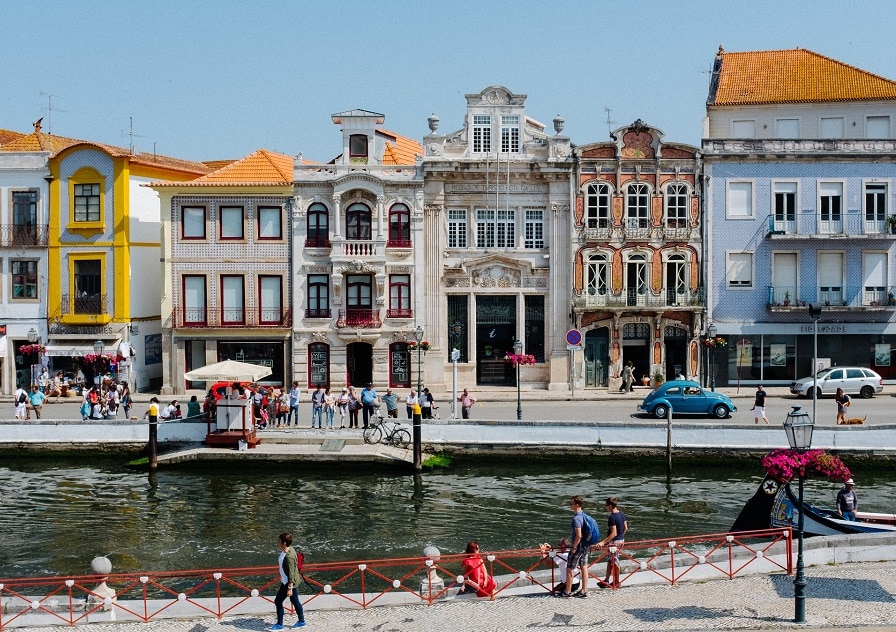People of all ages, from retirees to young professionals, are moving to Portugal for the weather, low cost of living, culture, and all-around high quality of life. Finding a new home in Portugal and making friends in the country is relatively easy. However, working in Portugal as an expat or working remotely from Portugal can bring a different set of challenges. Navigating the local job market as an expat can be tricky, especially if you don’t speak Portuguese.
To help you gather more information about working in Portugal as an expat, and be more confident to pursue your dream of living in this amazing country, we’ve created this guide that includes everything you need to know when you’re looking for a job in Portugal.
The job market in Portugal
In recent years, the unemployment rate in Portugal has come down quite a bit from 12.4% in 2016 to 5.6% in 2020.
Portugal’s main industries include hospitality and tourism, textiles and footwear, construction, automotive, construction, and transportation. Compared to the bigger European economies, Portugal doesn’t attract as many foreign workers, however, there has been an increase in working-age migrants in the last few years. Today, this group makes up just over 3% of the working Portuguese population.
What is the minimum wage in Portugal?
If you’re moving to Portugal from the US, you may be wondering how the minimum wage in Portugal compares to that of the United States. The figure is reviewed by the Portuguese government every year. In 2022, the minimum wage in Portugal stands at $735 per month, which is 37% lower than the U.S. Federal minimum wage of $1,160 per month.
Do you need a visa to work in Portugal as an expat?
Yes. Most non-EU nationals require a Portuguese work permit before they can start working in Portugal. In most cases, a Portuguese work permit is exclusively available to non-EU nationals with a job offer. For anyone else seeking employment, obtaining a visa is required. As Portugal is located in the Schengen Area, the visa comes in the form of a long-term Schengen Visa or type D visa.
How to find a job in Portugal
Your native English language skills can be a great advantage in certain jobs, so its best to search for positions where your particular skills are viewed as an asset. The best jobs for English speakers in Portugal include: real estate agents, content creators, web developers and more.
There are many different ways to look for jobs in Portugal. Let’s explore some of the most popular methods:
1. Portuguese job listings sites
The most common way to find a job as an expat is to search on job listing sites. The following websites are the most popular in Portugal:
Portugal’s Public Employment Exchange publishes job opportunities in the public sector.
This website lists more than 30,000 job openings in Portugal and allows you to search by industry and location.
This is Portugal’s largest job website, with over 500 jobs added every day.
Jooble lists advertisements for a large range of openings in Portugal, with a focus on part-time and remote jobs.
This is a new recruitment site in Portugal, but it already has over 185,000 candidates registered.
This is one of the best job posting sites in Portugal’s online employment market with hundreds of jobs posted every day and a comprehensive search function.
2. Portuguese recruiting agencies
Working with a recruitment agency can help navigate the entire process of finding and securing a job. Some of the most popular recruitment agencies in Portugal include:
- Eotim
- Hays Portugal
- Kelly Services
- Luso Basto Servicos
- Praktikum Portugal
3. Online jobs groups for expats in Portugal
On social media, there are many groups dedicated specifically to helping expats find jobs in Portugal. Some of these include:
4. Finding a job in Portugal by word of mouth
It’s a great idea to network with local businesses and professionals who may be aware of vacancies. There are a few networking groups for expats in Portugal, including Meetup and InterNations, which offer a great way to find potential opportunities in a casual setting.
5. Other ways to find a job in Portugal as an expat
If you’re already living in Portugal, you can buy the local newspaper in your area. Most newspapers list the latest vacancies available.
Moreover, you can send your resume to employers you are interested in working for. Most businesses will keep your documents on record for future openings.
Applying for a job in Portugal
Once you’ve found a job, the next step is to work on your application. In Portugal, the job application process typically involves completing a standardized application form and/or sending a resume with a personal statement. Unless asked, it’s not necessary to send copies of any educational certificates with your job application.
The interview process usually takes some time and may include a psychological or psychometric test. The process will depend on the type of job you are applying for.
If you get the job, you will be asked for references that will be contacted. You can expect to provide up to three references, which may include previous employers, teachers or those who can testify to your job skills. Thereafter, a start date will be arranged.
Being self-employed in Portugal
Whether you’re already a self-employed worker or looking to become one, Portugal offers an excellent digital nomad culture. Welcoming locals, a great climate, and a relaxed lifestyle make it a popular choice for many expats.
Portugal even offers a Digital Nomad Visa if you’re considering living in Portugal as an American remote worker. The conditions are that the individual has to make up to four times the national minimum wage to work in the country.
Self-employed workers who are legally required to pay social security contributions and report their turnover can enjoy almost all of the benefits that other employees receive.
If you are working remotely from Portugal, you are protected by Social Security in the following situations:
- Maternity and paternity
- Sickness and disease
- Work-related health conditions
- Old age
Make the move to find your next job in Portugal
If you want to find a job in Portugal, prepare and equip yourself by researching the job market before making a move and setting realistic expectations for yourself. There will be some obstacles in your way, however, with the right knowledge you can navigate the market effortlessly and find a good-paying job that matches your skills.
Ready to plan your move to Portugal? Check out more priceless advice for living in Portugal.




